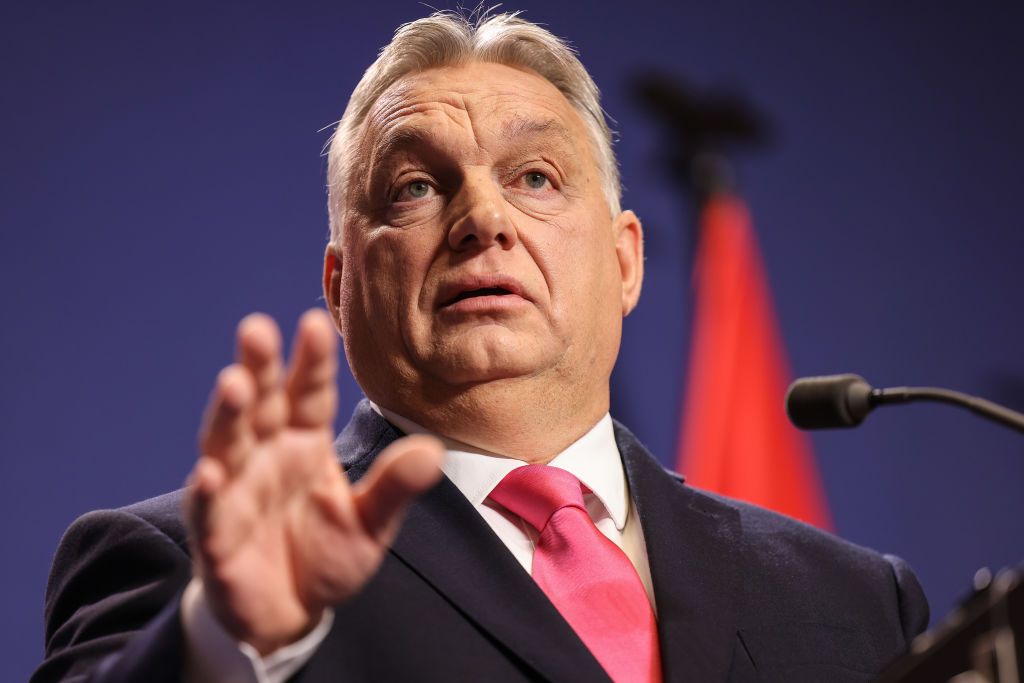Fico says Slovakia backs Hungary, will fight any attempt to restrict voting rights

Slovak Prime Minister Robert Fico declared his support for Hungary and his counterpart Viktor Orban after bilateral talks on Jan. 16 and said Slovakia would fight potential measures to restrict Hungary's EU rights.
Elected in September on a populist, Ukraine-skeptic platform, Fico halted arms supplies from Slovakia's military stocks and repeatedly criticized both defense assistance for Ukraine and sanctions against Russia. He has said there is no "military solution" to the war, an assertion he repeated on Jan. 16.
Fico's government is close to Orban and his Fidesz party. Orban said on Jan. 16 that Slovakia - Hungary relations were at a "high point" and that both countries are "unhappy about Brussels' initiatives for a super state."
The meeting came days after Petri Sarvamaa, a senior member of the EU's parliament, began circulating a petition to revoke some of Hungary's membership rights, including voting, due to the country's "erosion of the rule of law" and obstructive behavior in the face of EU consensus building.
The petition quickly gained the support of at least 120 other lawmakers, and Sarvamaa said on Jan. 16 that "the final letter has now been sent to the President of the Parliament (Roberta Metsola)."
"On Thursday, we will be voting on a joint motion resolution, negotiated this morning with five political groups in the parliament," he added.
Anger within the EU toward Hungary has been growing over Orban's obstructionism regarding support for Ukraine, but it reached a boiling point after Orban blocked $55 billion in aid for Ukraine at an EU summit in December. Orban also refrained from voting for Ukraine to move forward with EU accession talks.
He reiterated his concerns about the funding package on Jan. 16.
"If we want to help Ukraine, which I think we need to do, we have to do it in a way that doesn't harm the EU's budget."
Fico largely backed Orban's justification for voting against the funding, saying that the Hungarian leader's unease was "rational and sensible."
Fico did not say he was fully opposed to the aid but rather wanted to see it renewed annually.
EU leaders plan to vote on the funding again on Feb. 1.
There is historical precedent for how Slovakia and Hungary have discussed jointly opposing the EU and protecting each other from perceived threats from Brussels. Under the previous Polish Law and Justice (PiS) government, Poland and Hungary backed each other as they flouted the EU's rules.














